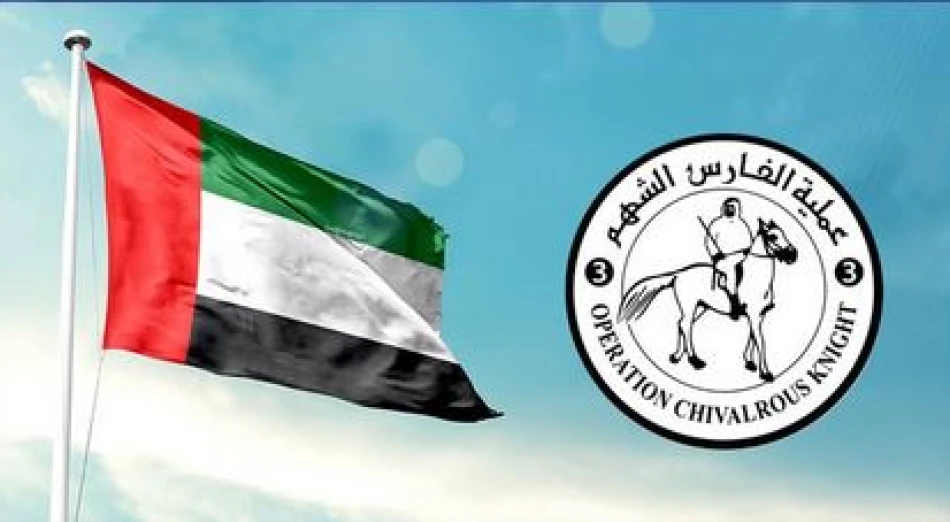
Ambitious 'Valiant Operation 3' Inaugurates Gaza's Largest Water Project
UAE Opens Massive Water Pipeline to Gaza, Delivering 2 Million Gallons Daily Amid Crisis
The United Arab Emirates has officially launched a critical water infrastructure project that channels desalinated water from UAE-operated plants in Egyptian territory directly into Gaza, marking the largest humanitarian engineering effort to address the territory's severe water shortage since the conflict began. The 7.5-kilometer pipeline can deliver 2 million gallons daily to over one million people, representing a strategic shift toward large-scale infrastructure solutions rather than temporary aid.
Engineering Scale Matches Humanitarian Urgency
The water transmission line stretches 7.5 kilometers and connects to the Al-Buraq reservoir in Khan Younis, which has a capacity of 5,000 cubic meters. This infrastructure approach differs significantly from typical emergency response measures, suggesting the UAE views Gaza's water crisis as requiring permanent solutions rather than stopgap relief.
The project was inaugurated under the UAE's "Operation Gallant Knight 3" framework, with representatives from Gaza's coastal water and municipal authorities, Palestinian community leaders, and UAE officials present at the ceremony. The scale suggests this is designed as critical infrastructure rather than temporary humanitarian aid.
Strategic Infrastructure Investment Beyond Emergency Relief
This pipeline represents the culmination of broader UAE water infrastructure investments in the region, building on six previously established desalination plants plus storage tanks, water trucks, and well maintenance programs. The systematic approach indicates long-term planning that extends beyond immediate crisis response.
The UAE's method contrasts with traditional humanitarian approaches that focus on distributing bottled water or temporary facilities. By establishing permanent desalination and transmission infrastructure, the Emirates is creating lasting capacity that could serve Gaza's population well beyond the current emergency.
Regional Water Diplomacy and Geopolitical Implications
The project's routing through Egyptian territory demonstrates sophisticated regional coordination, requiring approvals from Egyptian authorities and likely involving complex logistical arrangements. This trilateral cooperation between the UAE, Egypt, and Palestinian authorities represents a model for addressing infrastructure challenges in contested territories.
The UAE's investment in permanent water infrastructure also positions the country as a key stakeholder in Gaza's long-term development, potentially influencing future reconstruction and governance discussions. Unlike temporary aid that creates dependency, infrastructure investments create lasting relationships and influence.
Technical Achievement Under Extreme Conditions
Constructing and operating a 7.5-kilometer water transmission system during active conflict represents significant technical and logistical achievement. The project required specialized equipment, security coordination, and rapid construction timelines that few countries could execute effectively.
The daily capacity of 2 million gallons addresses immediate needs while creating surplus capacity for population growth and economic recovery. This forward-looking approach suggests the UAE anticipates Gaza's eventual stabilization and wants to ensure water access doesn't constrain future development.
Following the inauguration, journalists and community representatives toured the pipeline system and distribution points, observing the flow of potable water to reception points and storage tanks throughout Gaza. The transparency of operations indicates confidence in both the technical systems and security arrangements that make such infrastructure viable.
Most Viewed News

 Sara Khaled
Sara Khaled






